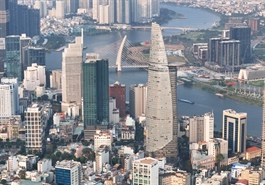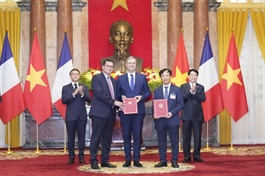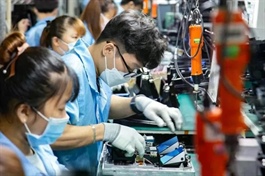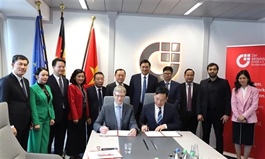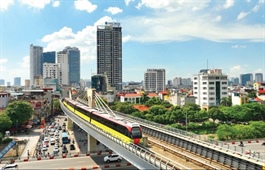EuroCham seeks solutions to work permits
EuroCham seeks solutions to work permits
The European Chamber of Commerce in Vietnam (EuroCham) submitted a letter to the Ministry of Home Affairs (MoHA), offering recommendations to a draft decree intended to replace Decree 152 governing work permits for foreign professionals.
At the core of EuroCham’s submission is a widely shared concern among the international business community: the rigid requirement for formal academic degrees when applying for expert work permits, even in fast-evolving sectors where such majors did not historically exist.
Businesses, particularly in semiconductors, AI, and digital transformation, have called for greater flexibility to recognise professional experience in place of academic credentials.
The draft decree is scheduled for submission to the government by May 31.
EuroCham chairman Bruno Jaspaert noted at the recent Whitebook Launch in April, “It took more than six months of paperwork and waiting to bring in a logistics expert with 25 years of experience, just because he had a degree in biology. That is not just a cost burden, it slows down innovation and disrupts business operations.”
In the past few decades, these industries have advanced faster than formal education systems can adapt, and Vietnam risks missing out on world-class talent due to outdated administrative criteria.
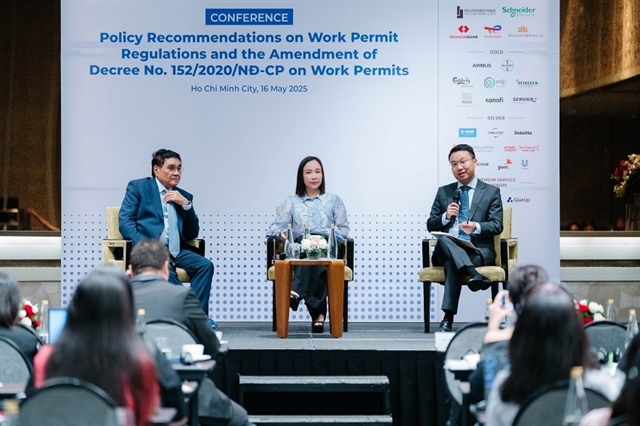
From left to right: Jean-Jacques Bouflet, Nguyen Thi Quyen, and Nguyen Hai Minh chairing the Q&A discussion on May 16. Photo: EuroCham |
Recognising EuroCham’s track record of delivering structured and impactful policy advice, the chamber and the MoHA held a discussion on May 16.
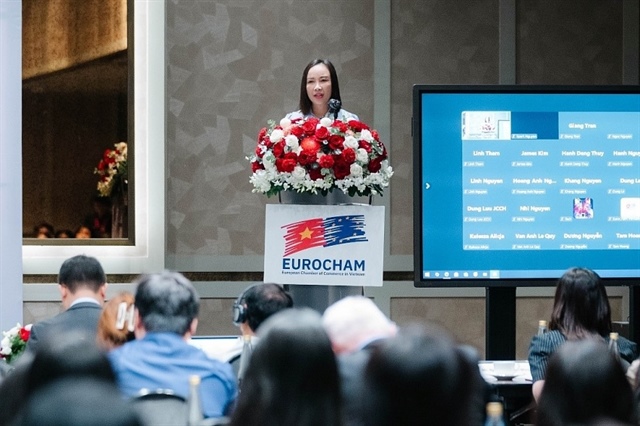
Nguyen Thi Quyen shared the new draft decree on work permits. Photo: EuroCham |
This engagement was part of the Vietnamese government’s broader efforts to streamline procedures and reduce administrative burdens, the goals that have gained strong momentum since late 2024. Deputy director general Quyen shared that the draft decree aligns with the prime minister’s directive to cut procedures by at least 30 per cent, with some measures proposing up to 40 per cent simplification.
Officials also acknowledged the degree-versus-experience concern and confirmed they are reviewing whether relevant work experience may substitute for academic degrees, especially in innovation-driven sectors.
During the session, Truong Ngoc Diep, EuroCham’s Advocacy manager, and Nguyen Thuy Duong, representative of the human resources and training sector committee, presented key recommendations. These included clarifying exemptions for intra-corporate transferees, simplifying short-term expert assignments, adjusting job posting requirements for Vietnamese labour, and standardising submission procedures.
Representatives from the international business community shared real-life stories that help government officials understand the perspectives of both employers and employees. Furthermore, they suggested regulation updates to enhance business efficiency and drive more quality investments and knowledge transfer into Vietnam.
The session reaffirmed EuroCham’s commitment to shaping a more predictable, transparent, and business-friendly regulatory landscape in Vietnam. Work permit reform is one of EuroCham’s five must-win battles for 2025, as outlined in the Whitebook Launch 2025.
EuroCham vice-chair Jean-Jacques Bouflet praised the government’s openness to dialogue, saying, “This consultation is a vital step toward regulatory clarity and a competitive talent environment. We are proud to serve as a bridge between the European business community and Vietnamese policymakers.”
As Vietnam aspires to become a regional innovation hub, EuroCham stands ready to continue working with authorities to ensure that regulations evolve in line with the needs of a globalised, high-tech economy.
- 17:48 27/05/2025







